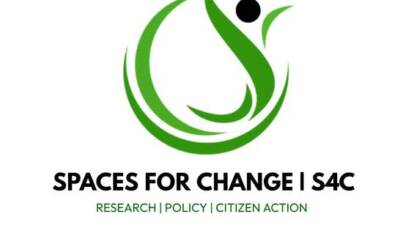Tenancy Bill 2025: S4C welcomes clause to regulate rent increases

Stanley Ihedigbo
Space for Change (S4C) has expressed support for Section 33 (1) of the Lagos State Tenancy and Recovery of Premises Bill, 2025, which empowers tenants to challenge unreasonable rent increases in court.
In a statement made available to The Mirror, signed by Communication Associate, S4C, Joachim Onwe, stated that the Bill was notably silent regarding the frequency of the increment and the time within which landlords may notify sitting tenants of their intention to increase rent.
The group participated in the public hearing on the Lagos State Tenancy and Recovery of Premises Bill, 2025, organized by the Lagos State House of Assembly Committee on Housing.
The public hearing drew the participation of a diverse group of urban stakeholders in Lagos State, including the Lagos State Attorney General, the Lagos State Commissioner for Housing, university professors, lawyers, realtors, professional groups, community associations, estate and urban planners, and university students.
During the hearing, S4C presented a memorandum detailing key areas of concern and practical recommendations for advancing housing justice in Lagos State.
Some key findings from the memorandum include: Access to affordable housing is a major concern for many Nigerians, especially in Lagos State, where the housing deficit is currently estimated at 3.96 million.
Additionally, high rental costs, dated legal frameworks, and unwholesome practices are major barriers to affordable housing. The proposed Bill seeks to regulate the relationship between landlords and tenants, including the procedure for the recovery of premises in Lagos State, among others, by redefining the legal framework governing tenancy agreements, rights, responsibilities, and the process for tenants’ eviction in the State.
The memorandum proposed that the Bill should clearly stipulate that rent increments may only be effected once every two years to accommodate inflationary trends, adding that a clear timeline be provided for serving notice of rent increases on existing tenants.
The memorandum highlighted the growing trend in Lagos State where landlords expressly deny occupation to residents based on their tribe or ethnicity, marital status, and even religion.
Given that this is a clear-cut violation of the citizens’ right to freedom from discrimination, the memorandum called for the Bill to include a provision for clear and enforceable penalties for proven discriminatory practices, such as fines, suspension of an agent’s license, or temporary restriction on a landlord’s ability to lease the property.
The prevalent practice among property owners in Lagos State of charging exorbitant amounts on prospective tenants under the guise of “agency fee” or “Commission” was pointed out in the memorandum.
These fees, together with other sundry charges, usually raise the cost of renting properties in Lagos State.
While the memorandum acknowledges the Bill’s proposed reduction of the chargeable agency fee from 10% in the 2015 law to 5%, there are concerns that agents could circumvent this proposed provision by inflating other chargeable fees.
The memorandum recommends that agents be compelled to factor all other fees into the prescribed 5% which can be deducted by the tenant or landlord before final payment on the transaction.
In the bid to secure premises, prospective tenants release their personal, sensitive data to landlords and agents who are often not trained in processing this data.
The leads to cases of unchecked data collection by fraudulent individuals who share this data with other parties for unconsented purposes.
The memorandum recommended that the Bill introduce clear sessions in the Bill to provide for ethical data collection, processing, storage, and sharing by landlords, agents and property managers, in line with the provisions of the Nigeria Data Protection Act (NDPA) 2023.
The impact of climate change and other natural disasters sometimes necessitates reliance on emergency shelters in Lagos State.
While non-governmental organizations (NGOs) and private individuals lead these efforts, state actors have, over the years, raided these shelters and forcefully evicted inhabitants, rendering them homeless without alternative housing arrangements.
Though S4C applauded the retention in the Bill which exempts residential premises provided for emergency shelter, it recommends a sub-section defining “emergency shelter” to ensure the consistent application of the provision and the protection of those most in need.
Previous tenancy laws in Lagos State created residential segregation, where some parts of Lagos State were excluded from the application of the tenancy laws.
This perpetuates the colonial class structures and exacerbates socio-economic inequalities, among others. S4C welcomes the removal of this provision, as it aligns with the constitutional provision that prohibits discrimination based on social standing.
In conclusion, the Lagos State House Assembly Committee on Housing received the memorandum and promised to dispassionately consider the recommendations for possible inclusion in the bill.
The Bill is a welcome initiative that can be a significant step towards improving the relationship between landlords and tenants while ensuring the protection of underrepresented tenants.
Partnership opportunities abound with Golden Land Estate Venture
Michael Olumide Golden Land Estate Venture, a decade-old real estate company, has expanded…





